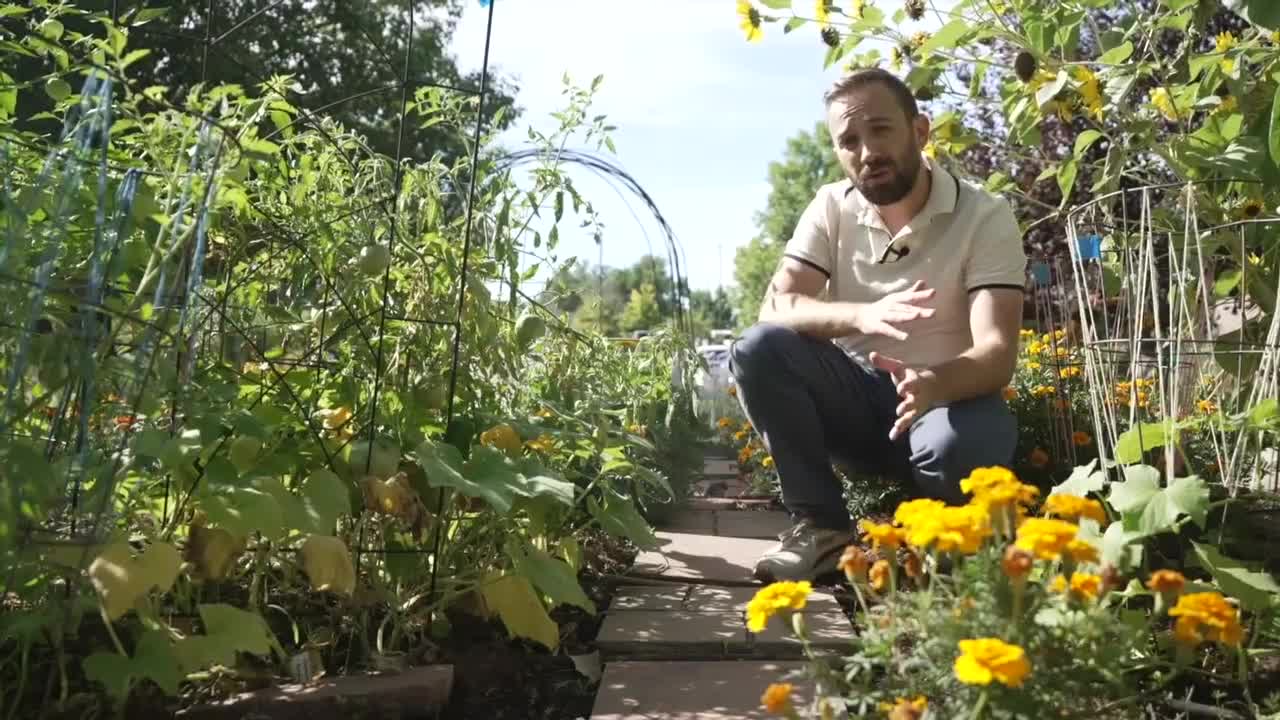LITTLETON, Colo. — For blind adults, getting their hands in the soil can be more than therapy. It can be a path to independence.
The Colorado Center for the Blind partners with CSU Extension’s Colorado Master Gardener program to teach students how to garden without sight — relying, instead, on senses like touch and smell.
“Our students learn how to function in the everyday world, and gardening is a part of that,” JoAnne Hoffman, team lead for the Master Gardener program, said. “A huge part of gardening is feel. Everything has texture and everything has smell. The students love to get their hands in the dirt.”

Volunteers and donated materials built the raised-bed gardens, called Legacy Gardens. The space is used mostly for vegetables the students will eat and cook: tomatoes, beans, tomatillos, zucchini, eggplant and okra. Students are asked what they want to grow at the start of the season, and they learn not only planting and pruning but also how to identify healthy leaves and spot pests.
“If you are familiar with the plants, you can touch the leaves and know what's growing. You can rub a tomato plant and smell the vine and know that it's tomato,” said Tiffany Moon, garden liaison at the center and a former professional chef who began losing her sight in her late 20s. “Gardening is more than sight. It's very tactile and uses a lot of your other senses.”
For recent graduate Jeremy Smith, who has a degenerative retinal disease and is soon returning to work as a mental health therapist, the work has been uplifting.
“This is a transformative experience,” he said. “There’s a sense of accomplishment and responsibility for something, and there’s a fulfillment of seeing something from seed to the veggies that are sitting on your plate. Maybe you’re feeding your kids with that. That’s a significant thing.”

Students also practice kitchen skills, using what they harvest. Nikki Abram, who lost her vision six years ago and recently came to the center to gain mobility and technology skills, recalled the thrill of harvesting okra for the first time.
“I'm from Georgia, but I had never picked fresh okra before. It was just so exciting,” she said. “This place helps you spread your wings and come on out. It's still life to be led, even though you may not be able to see it, you can experience it with your other senses.”






